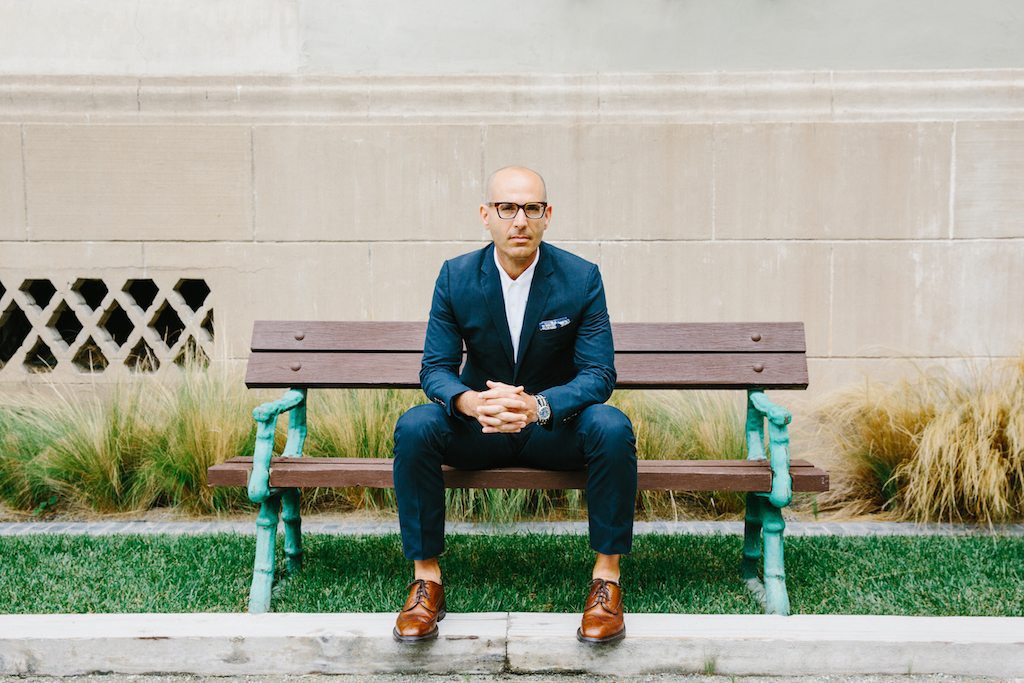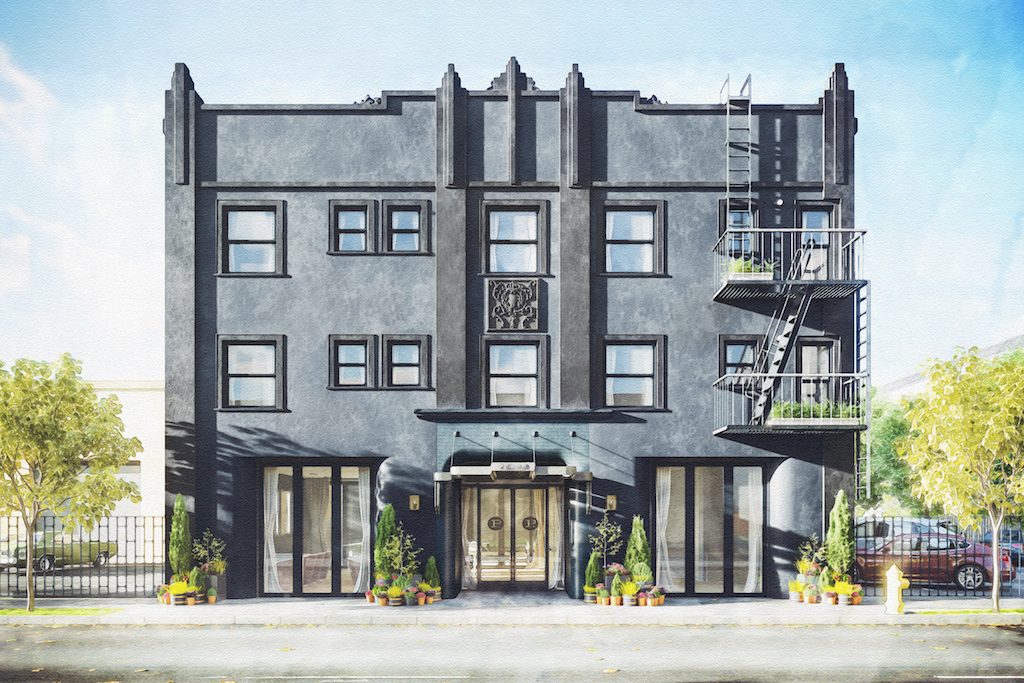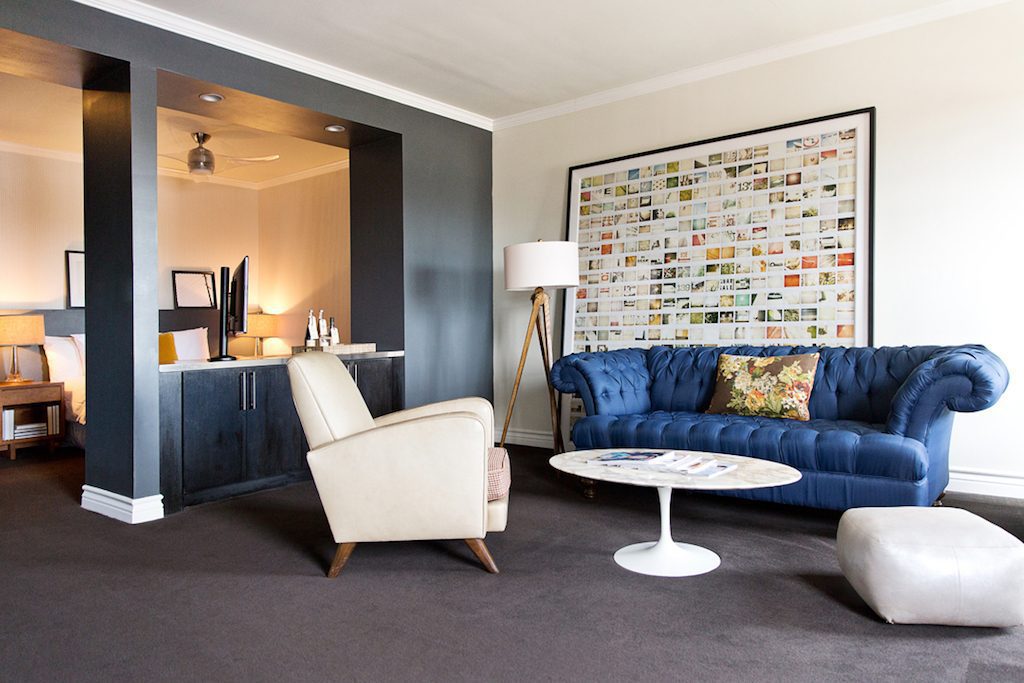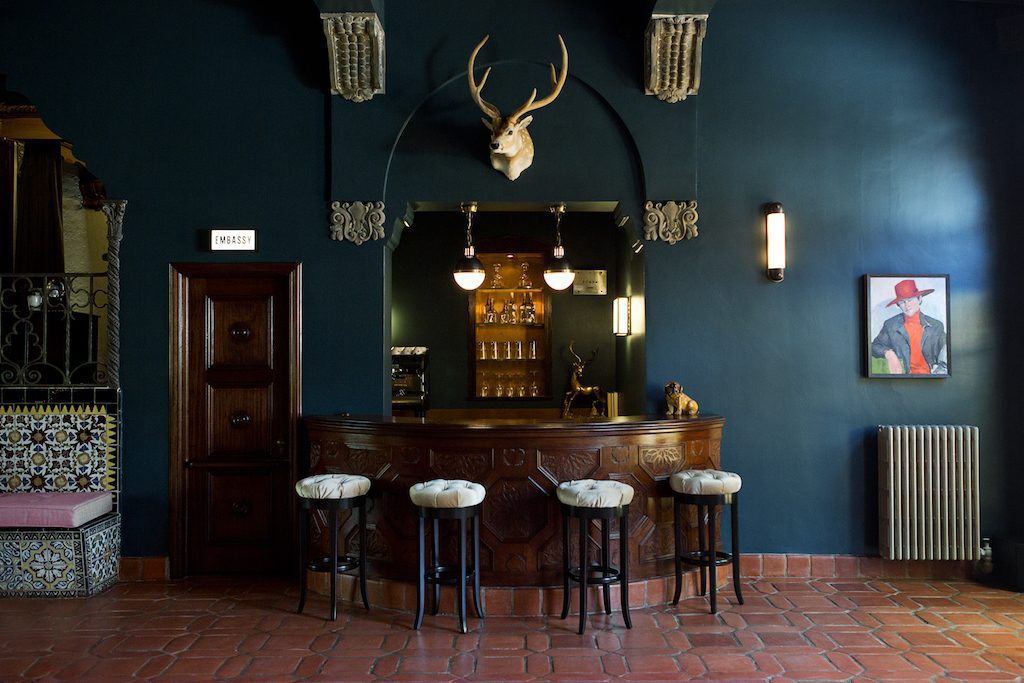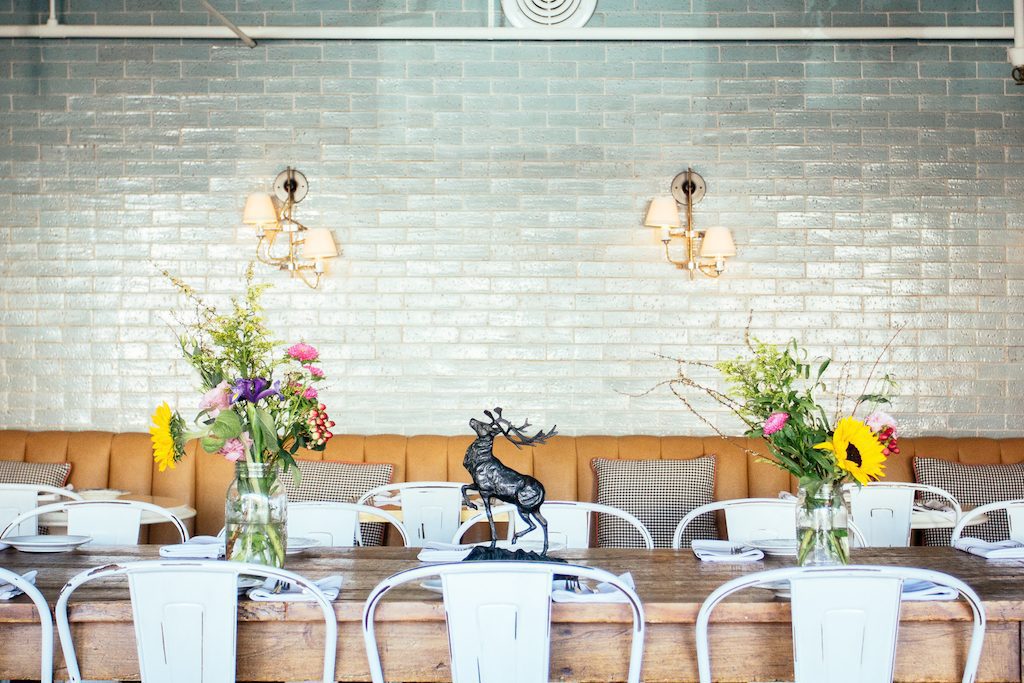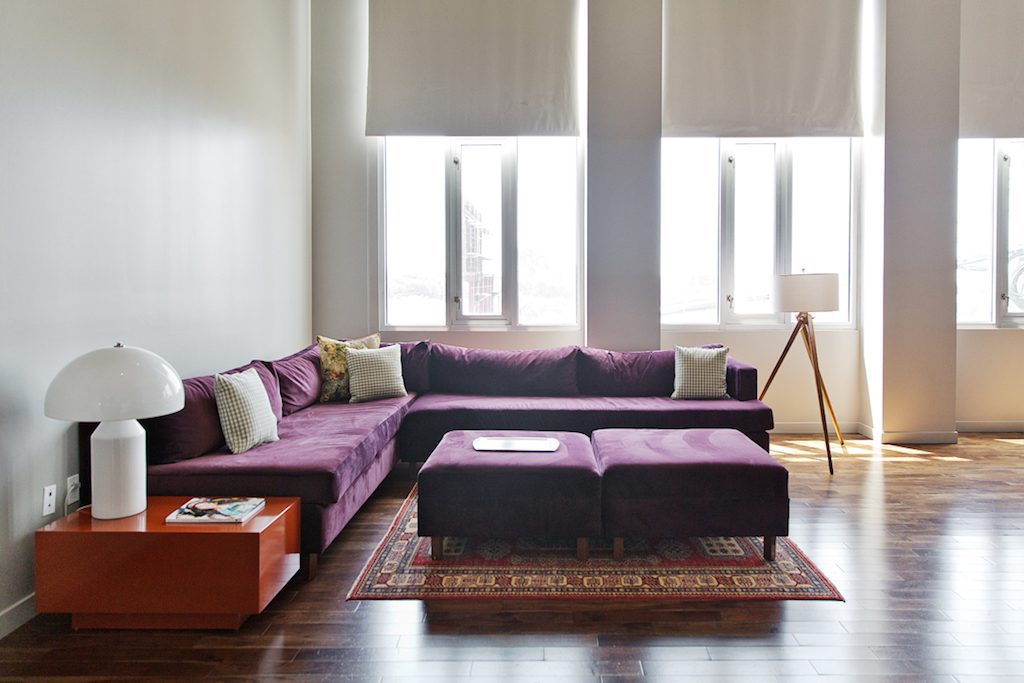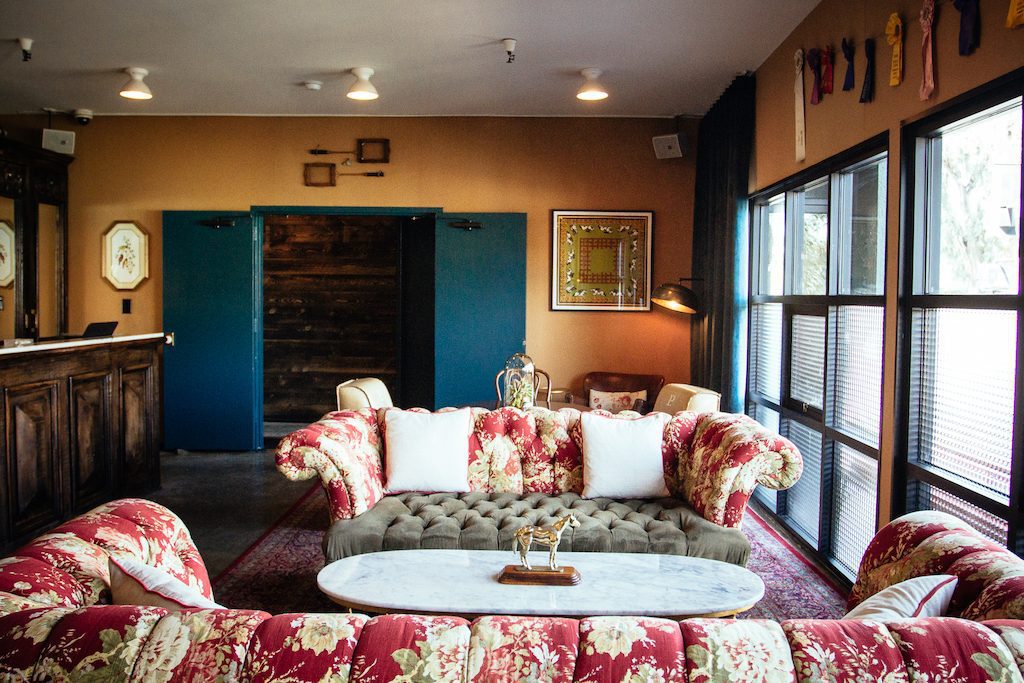Skift Take
In some ways, building a boutique hotel brand isn't much different from when the first pioneers did it in the early 1980s. The only distinction is that today, the competition is certainly tougher and increasingly more abundant.
When Paligroup CEO Avi Brosh decided to start his own hotel business in 2008, it was because he saw “a hole in the market.” He thought there was an opportunity smaller, neighborhood-oriented hotels that local communities could champion.
Inspired by the boutique hotels he’d come across in Europe and in New York City, the former real estate developer embarked on opening his first hotel on his own. “Because the hotels I was opening were so unique, I really had to go it alone with respect to operating them, not only on the room side, but also on the food-and-beverage side,” Brosh said.
Read More: Complete Oral History of Boutique Hotels
The learning curve, as Brosh put it, “was a long arc,” and he said he spent the greater part of 2008 to 2013 “essentially learning the business.” Now, having had that firsthand education in independent hospitality, Brosh is ready to grow the Paligroup into a much bigger boutique hotel brand.
Today, Paligroup has three Los Angeles-based hotels under two brands, namely Palihouse Santa Monica, Palihotel Melrose, and Palihouse West Hollywood. They have garnered a reputation for their unique design, and popular restaurants and bars. Four more hotels are already in the works, two of which will also be in Los Angeles, one in Seattle, and another in Miami. Brosh plans to have 30 hotels throughout the U.S. and, perhaps, beyond, within the next five to 10 years.
Skift recently spoke to Brosh to talk about his approach to hospitality, including what works and what doesn’t, and the unique challenges of growing an independent boutique brand in today’s increasingly consolidated hotel landscape.
This interview has been edited for length and clarity.
Skift: What prompted you to start growing the brand more, going from three hotels to a total of seven?
Avi Brosh: Because I was so conditioned to developing these projects myself — meaning I was the developer and the operator and we designed everything ourselves, and we sort of did everything soup to nuts — I was just operating under the assumption that that was really what our model was going to be. It didn’t really dawn on me that perhaps other people would want to collaborate with me going forward on projects. After we opened up the third property, what started to happen was people started to approach me with other communities about doing sort of like-minded properties, frankly all over the country, and not necessarily just in Los Angeles.
We took 2015 and 2016 to rejigger our business model, and what I mean by that is we said, “Maybe we don’t have to be the sponsor in all these deals. Maybe we don’t have to take on all the heavy lifting. Maybe we could do more collaborative type projects where maybe we didn’t necessarily even have to play the developer role, where we could just continue and be, essentially, the brand, and prove the design function and the operator function, and let’s see what happens when we explore that as an opportunity.” Once that revelation, that epiphany happened, the floodgates really opened in terms of our expansion.
Very quickly thereafter we secured projects in Culver City, in Westwood Village, in Seattle, in Portland, in Miami Beach, and we now have two or three others actually that we’re about to announce as well. All of these have varying differences in terms of the level of our involvement on the sponsorship side. In some instances, we’re just providing the brand function, and in other projects we’re actually providing the sponsor function.
The very long-winded answer to your question was that we just sort of changed our business model, and then the opportunities really came to us. I think what’s important to note here though, right out of the gate, is that despite our growth, venue wise, I would also just quickly note that with all of these venues that have food and beverage, we handle all the lodging and all the food and beverage internally.
What’s really important to note is that despite the increase in venues, the philosophy behind what we’re doing is exactly the same. What I mean by that is every single project is a smaller, neighborhood-oriented hotel that is catered specifically for that neighborhood and for the people that are from the neighborhood that can champion the hotel. Whether it’s Miami Beach or Portland or the more projects we’re doing in Los Angeles, that in and of itself is not changing.
Skift: Why are so many hotel companies, yours included, transitioning from the owner-operator model to the asset-light model? And how asset-light do you see Paligroup becoming?
Brosh: I totally understand that model. The difference is that all of my hotels are very proprietor driven. I don’t necessarily look at it that way, so, in some instances our project are asset heavy, and in some instances are asset light.
I don’t think we have a specific strategy with respect to how the real estate plays into the program. I think the reason lodging companies take an asset light approach is because they’re not very experienced on the real estate side.
I was in the real estate business for 25 years before I opened my first hotel. I was very experienced in the real estate. For me, the real estate component of the hotel side, to me, are mutually exclusive. I think you can build your management company while still being opportunistic on the real estate. I think that’s a little bit of a unique thing that, as I said, my approach is a little bit unique with respect to that.
Skift: How did your real estate experience give you some insight into how to run a hotel business? What did you learn from the experience? Why did you decide to just go the independent route versus building either with a brand or flag?
Brosh: I think that developing and building real estate really does not help you in the operations side of lodging. They’re two totally completely different animals.
However, what building big buildings, and I’ve done a couple million square feet of development in my career, what that does do is it really sees into you, with respect to the bricks and mortar component of hotels. Being involved either on the sponsorship side or on the design side of the hotels, we really have an intimate knowledge of the physical structures. We have a very intimate knowledge of the process of getting hotels built from a physical perspective, and that makes us great partners. That makes us the absolute best operator partner that you could hope for, because we are so collaborative and so accretive to the development process because we understand it so well, that we can really be very valuable and helpful to our developer partners in these projects.
But operationally, really, we have to learn, and I learned by doing it. That’s really how you learn the operations business.
With respect to flag versus non-flag, the reality is that my vision and where I see the opportunity is in smaller-keyed neighborhood hotels. Really, no flag wants to operate 50-room hotels. It just doesn’t really pay for them. That’s number one.
Number two is my approach on a lot of these projects is highly unorthodox. Our approach, is unique in terms of the way that we make the hotels, the way that we run them. Because of that, we had to really create our own path, create our own systems, procedures and protocols in order for it to really make sense. That was that.
Lastly, and probably most importantly, I really believe that what the hotel industry is lacking today is a human being behind a brand. Unless you’re a hotel geek like you and me, you know the people behind a lot of these brands are, right? You know who Barry Sternlicht is, or you know who Ian Schrager is, but most people don’t. I think that there’s room in the market also for us in doing and going on our own in an independent way for us to be a little bit more connected to the customer by putting a real human behind the brand and really expressing myself through the hotel and having people feel connected to that.
Skift: Have you ever been tempted to be part of one of the major hotel companies’ soft brand collections? How challenging has it been to power bookings as an independent?
Brosh: The answer is no. Really, the reason is because we appeal to a very certain kind of customer. Because of that we can really target who that customer is. Because our venues are small, we really don’t have to reach out to do huge group business and huge consortium business. We just don’t really do a lot of OTA [online travel agency] business. We have a lot of repeat customers.
If you have 50 rooms in Culver City, let’s just say, for example, we’re so tuned in to who our customer is in any given market that selling 50 rooms in Culver City is a lot different than selling 250 rooms in Culver City. We’re really able to cast a wide enough net just through our internal machinations of sales that we’re able to be very effective on our distribution.
One of the things that we do which is a little bit unique is we run our sales and marketing in a centralized manner, so we’re able to have a very robust sales team and have the horsepower behind that sales team apply to our smaller keys assets. They’re able to reap the benefits of having a very robust sales and revenue management team.
Skift: How much of your business is direct bookings?
Brosh: We do a tremendous amount of direct bookings. We do a lot less OTA (online travel agency) bookings than most operators. Then everything else is just a mix of in between. We’re very connected to who our customer is, so they can reach us. We’re very accessible in terms of our repeat business. If we know you’re a repeat customer, we really do open up the line of communication to allow you to book with us in a preferential way.
Skift: What do you make of the fact that there are so many hotel brands in existence, and how do you ensure that your brand stands out?
Brosh: There’s room for lots of different ideas. Different people have a different affinity toward different things. I made the very conscious decision that, even though I’m doing small, quirky hotels in all these markets, and when I mean small, I mean small by institutional standards, I made the conscious decision to maintain the integrity of the brand nomenclature, meaning everything is either a Palihotel, which is our more traditional-sized hotel rooms, or Palihouse, which is our suites product. What I’m trying to do is, even though our hotels are not the kinds of hotels that you would customarily see a brand or a flag being associated with, what I’m doing is creating this neighborhood hotel brand.
I think we can be very prolific in this space internationally, but I think we can still bring it all together by creating this very hands-on, curated, very independent spirit neighborhood hotel. That’s what I’m hyper focused on. A very long-winded way of saying that I don’t really operate in the world of larger hotels that are probably best suited to being associated with Hilton or one of the other operators.
Skift: Do you think today’s hospitality guest experience is broken or needs to be improved upon in some way?
Brosh: I don’t think it’s broken, I really don’t. I think that what’s so great about the lodging business today is that there’s something for everybody. There are so many people innovating right now in lodging, whether it’s technology or brand or locations or rewards systems, whether it’s consolidation, or whether it’s the guy who does a one-off hotel in a labor of love type project. I think there’s something for everybody. I don’t think it’s broken at all. I think there’s just something for everybody, and I think that really what’s happening is that there are a lot of smart people out there, and everybody is trying to innovate, and everybody is trying to increase or improve the guest experience. In so doing, I think the customer is benefiting from that process, so some people are hanging their hat on technology. Other people are hanging their hat on rewards systems. Other people are hanging their hat on consolidation. I think everybody has a slightly different point of view, and they play to their strengths.
Our strength is very connected independent spirited hotels that are slightly different than what you would get in a more institutionalized setting. Again, that’s not for everyone, but it works for us.
Skift: As you scale up to what are you going to be paying the most attention to?
Brosh: I think what we’re hyper-focused on is to maintain the spirit of the original collection of hotels. The original collection is our smaller, easy to wrap your arms around, quirky, very proprietor driven type hotels. We want to maintain that spirit as we grow. Between existing and pipeline hotels, we have 10. We are hyper focused on maintaining that level in terms of a very hands on approach. That’s I think what we’re going to focus on the most. I think we’re going to keep up with what’s happening from a technology standpoint. I think we’re going to keep up with what’s happening with respect to distribution, but ultimately at the end of the day, we’re going to lean on our location, our loyal customer base, and just continuing to deliver the things that we say we’re going to deliver, and try and make the places as inspired as we can.
Skift: As you grow Palihouse and Palihotel, what do you want people to associate with the brand or the type of experience that they could have when they’re visiting these properties?
Brosh: Outside of being redundant in terms of this whole idea of being connected to the neighborhood, which I’m not going to say again, I want people to know that the Pali properties are truly independent in terms of their spirit. They are not designed by committee. We are very deliberate in terms of our design and place-making sensibilities. That we really aim to tell a story that people can feel connected to, and I think that I want people to know that it’s going to be a quirky and fun experience. I think people will find a lot of value in terms of how the hotels are priced in their locations. We’re definitely not trying to be a luxury full-service hotel. We are trying to be a very user-friendly product.
I think that one of the things that we really try and focus on is very friendly, trusty service. We’re not pretending to be, like I said, a luxury, full-service hotel. We’re trying to be this really dependable, friendly place that’s incredibly well-designed and doesn’t really feel like the more institutional flag properties.
Skift: Your hotels have also been known for their food-and-beverage concepts, including the acclaimed The Hart and The Hunter restaurant at the Palihotel Melrose. What have you seen evolve and change in terms of hotel food and beverage over the years?
Brosh: It’s interesting. I can tell you the obvious, and then I can tell you what we’re focused on. What I noticed as a whole is really hotel food and beverage went from basically like really just about servicing the hotel to having this surge of being a little bit more entertainment based. A lot of these hotel F&B outlets, whether it’s restaurants, rooftops, other kinds of things, have really become a very important component to not only the placemaking, but also has become a very important component to the economics of the hotel. I think that there’s nothing earth shattering there in terms of hotel food and beverage. Everything I’m telling you now is basically in summary that hotel food and beverage has become extremely important in terms of the economics.
My view is, I think, a little bit more going back to the traditional model, and that is our food and beverage venue is about creating local, neighborhood food and beverage venues. We are about servicing the hotel guests first and foremost and having the guests have the absolute best food and beverage experience that they can have, because that’s much better for our room rates.
Our rooms business is much more profitable than our food and beverage business. Not just us, but everybody. Our No. 1 priority is to service our hotel guest and our local neighborhood to the extent that our food and beverage business is more robust than we perhaps are underwriting going in, because for whatever reason we struck a nerve, then fantastic. We’re going into all these deals underwriting food and beverage that is really about the hotel and the local neighborhood, and I think for me I think that’s the only business model that I’m interested really in pursuing. That’s my point of view.
Skift: You also have residential concepts in two of your hotels. Have you been paying close attention to the convergence of co-living and hospitality, and how much of an impact do you see co-living and co-working having on hotels going forward?
Brosh: In terms of the residential component, we have a program that we call “Residency.” Residency is our version of furnished, turnkey residential. Currently, right now, we run that as an offshoot of our Palihouse brand, which is our suites brand. Essentially what it is, is we are utilizing our suites, our turnkey hotel rooms as a residential product. They’re getting all of the benefits of a residential type space, but in a hotel environment. That is something that we do on all of our Palihouse projects currently, and anticipate doing in the future. That really is just how people want to use the space, and obviously, there are some pricing dynamics and benefits for people that do want to use the space that way.
With respect to co-living and co-working, I fully subscribe to the idea that there is going to be more co-working and co-living as part of the hospitality environment. No question. It’s happening now. I’m seeing it happen in other places. There’s no question in my mind that that’s going to be happening. I think to me co-working is transitioning from being an office user to really a hospitality user. I really see the co-working business as like the hotel business. I think what you’re going to see is that over time you’re going to have different co-working brands emerge no different than hotel brands. You’re going to have your Four Seasons of co-working, and then you’re going to have your Comfort Inn of co-working. I think you’re going to see ideas and brands and things kind of consolidate over time. I think it’s early days, but I think that’s my view for that.
With respect to co-living, I think we’re in very early days with respect to that, but I think there’s a lot of people doing some very smart things there. How much you layer hospitality into that environment I think is going to be similar to co-working where people that want high-end amenities and services in a co-living environment, that will be one model. The other where it’s very stripped down, I think that will be the model itself. I think the customer is going to ultimately tell everybody what it is what they want, and I think that’s what you’re going to see happen.
Skift: Is there anything that keeps you up at night with regard to running your business?
Brosh: A lot of things keep me up at night but that don’t relate to my business. I would say I think in terms of the lodging business, I feel very bullish about the space that we’re in. I feel really good about that. I feel really good about our growth profile. Like I said earlier, I’m very, very focused on maintaining the integrity of each individual location and making sure that all of the zeitgeist that’s made us successful so far continues in each platform.
I think one of the things that I don’t obsess about, but it’s something that I’m kind of listening, or keeping my ear to the ground on, is Airbnb. The only reason I do that is because, inasmuch as I believe there’s room for everybody, I just am so curious about if there’s going to be equal footing between Airbnb and the lodging industry in terms of restrictions, tariffs, taxes, safety.
I think we’re only in the very early, to use a baseball metaphor, I think we’re only in like the third inning with respect to Airbnb. I think that there’s a lot more things that are going to need to shake out there to see how the legislation is going to come together. We don’t really feel it in our hotels, at least it’s hard to tell whether we do or we don’t, but it’s definitely something that I’m kind of paying close attention to.
Skift: Airbnb has also been very innovative in trying to do more than just accommodations by offering tours and activities, experiences, adding restaurant reservations onto their platform, and saying that they might even get into flights. Are those the kinds of things that you’re also keeping an eye on? Are you thinking about entering into more tangential businesses or parts of the travel experience?
Brosh: They have the economic wherewithal to try a lot of things on for size, to take some very bold, calculated risks. They’re obviously disrupting a lot of industries, or all in the same vertical, but they are trying to push the envelope, which makes sense to me that they’re doing that.
I think for us, I think what we want to do, our first initial effort is to build enough platform where we can then think about other ways of sort of using our platform and our brand to maybe look into other things.
I think for now our focus is on getting our pipeline open. Over the next couple years, we’re going to get to 10 hotels. Get that open, further solidify an additional bit of platform, and then I think once we get to that place we can start thinking about how we can enhance the guest experience, or enhance the brand over all. I think before then, you’ve got to walk before you can run.
Have a confidential tip for Skift? Get in touch
Tags: boutique hotels, ceo interviews
Photo credit: Paligroup CEO Avi Brosh has big plans for growing his company's boutique hotel brand. Paligroup
